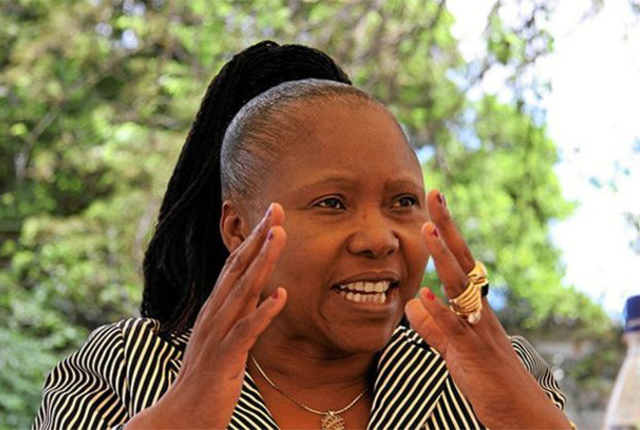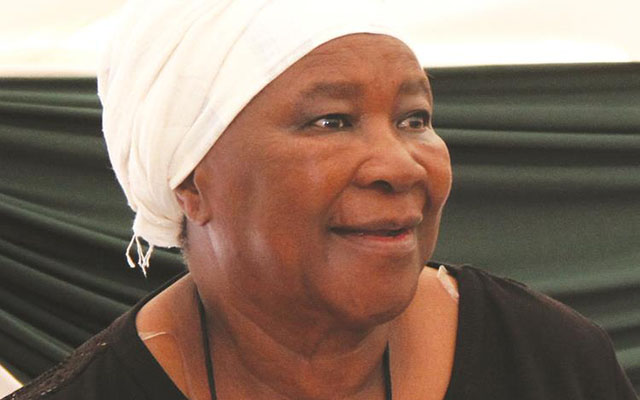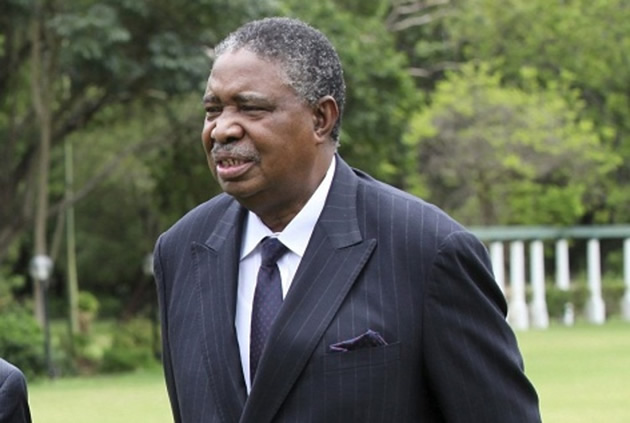Govt sets up quake committee

Abigail Mawonde Herald Correspondent
Government has set a task team comprising experts to assess the country’s state of preparedness to earthquakes and the capacity of the Meteorological Services Department to carry out its mandate. This follows the earthquake with an epicentre in Botswana that rattled some parts of the country on Monday. Addressing journalists in Harare yesterday, Environment, Water and Climate Minister Oppah Muchinguri said the country was now regarded globally as highly vulnerable, with low preparedness to respond to natural disasters like earthquakes.
“We are gathered here to interrogate and come up with scientifically backed answers as to why Zimbabwe has been frequently experiencing earthquakes,” she said.
“My ministry has been inundated with queries and request for these answers and this is because my ministry through the Meteorological Services Department is responsible for monitoring and advising the Government on matters relating to earthquakes.
“Our search for answers lies with the academia, research institutions and other relevant Government departments to look deeper into the issue of earthquakes in the country.”
The task team comprises of Dr Dumisani Hlatywayo, Dr Teddy Zengeni, Mr Tatenda Kwangwari, Dr Vunganai Midzi and Mrs Rebecca Manzou.
They are expected to determine the vulnerability of Zimbabwe to seismic activity; to research into the potential impacts of earthquakes on infrastructure, life and property; to assess the state of response preparedness of Zimbabwe to earthquakes; and establish whether there are any policies or guiding material in countries that are highly prone to earthquakes such as the United States, Japan, Nepal, Turkey, Italy and closer to home — Mozambique, South Africa and Zambia.
The team is also expected to propose policies which Zimbabwe can establish on seismology; and assess the capacity of MSD with respect to fulfilling its national mandate, which should include the optimum number of seismological stations, human capacity and technology, as well as the ability to carry out seismological impact assessments before some of the major infrastructural projects and ventures such as dams, mines and high rise buildings are carried out.
“The findings of this research will help us in improving our knowledge on the sources and effects of earthquakes affecting us,” said Minister Muchinguri-Kashiri. “The study will help in the mitigation of seismic hazards.
“Seismic hazard studies help in identifying major seismic hotspots and thereby coming up with proper mitigation measures in the event large a earthquake hits the country.”
Minister Muchinguri-Kashiri said the report on the group’s findings were expected to be presented to Cabinet by next month.
She revealed that in 2016 alone, over 50 earthquakes ranging from magnitude 1,5 to 4,6 were recorded in Zimbabwe.
Most of these earthquakes had been taking place in Chipinge, Kariba, Karoi, Nyamandhlovu, and the latest in Masvingo near Tokwe-Mukosi Dam.
Minister Muchinguri-Kashiri said in addition to this, the tremors had been felt outside these areas even to as far as Harare, Hwedza, Nyanga, Mutare and Hwange.
More recently, sine the earthquake on Monday, about 56 aftershocks have been recorded and analysed with magnitudes ranging from 3.0 to 5.0 on the Rither scale.
“Of these aftershocks, a 5.0 magnitude earthquake occurred today (yesterday) at 00:55 UTC (0255hrs local time),” the MSD said.
“There was no report of any felt event in Zimbabwe for the duration of the aftershocks. However, there are chances of more aftershocks occurring at the same epicentre.”








Comments